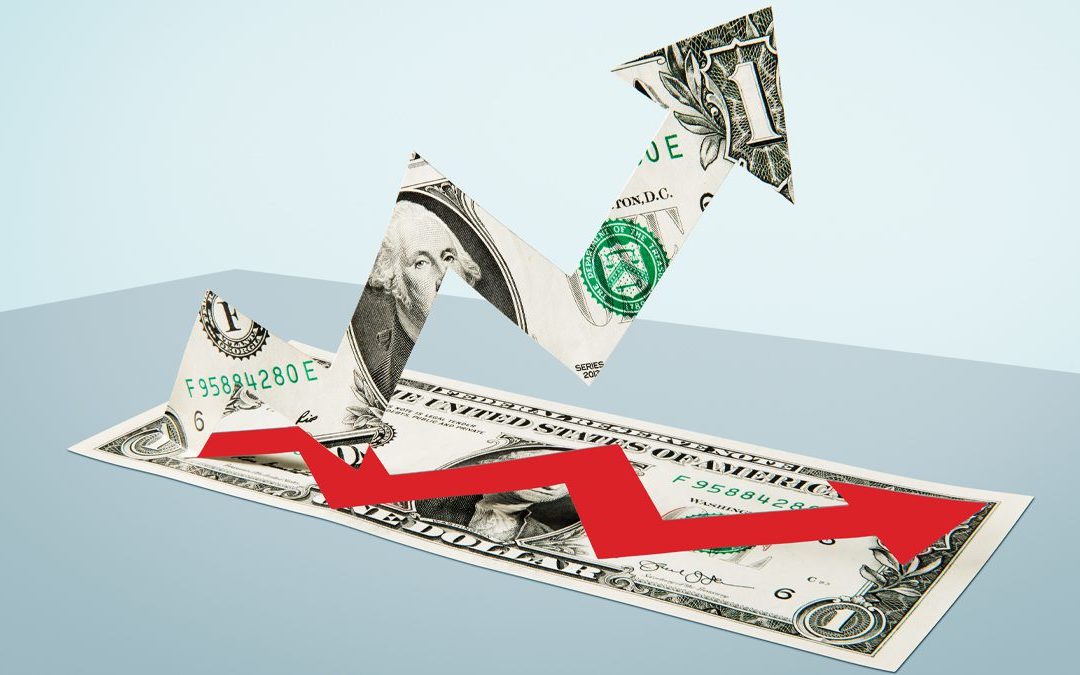How High Will Mortgage Interest Rates Rise, and How Fast?: Massachusetts Homebuyers Homeownership
If you’re shopping for a new home now or are hoping to this spring, you probably feel your heart racing a little. The word is out: Mortgage interest rates are on the rise. This means for the same size loan (and house), borrowers will have to pay a higher monthly mortgage bill every month. And that’s prompting many homebuyers to feel as if they need to hurry up and find a house, ASAP.
“Buyers are hyperaware that interest rates are climbing,” says Steve Clark, a real estate agent at Compass in Southern California. “They know it’s important to purchase a home quickly.” This panic is further intensified by the rising cost of real estate due to low housing inventory. The median home price nationwide is hovering ten percent higher than a year earlier, at $375,000.
“My clients are feeling the pressure from the lack of inventory, which is compounded by the increase in interest rates,” says Maggie Ding, a Compass real estate agent in the Los Angeles area. “It feels like they are being hit on both ends.” It’s a hard time to be a homebuyer, for sure. But if your palms are getting sweaty just thinking about what you’ll face when you apply for a loan, it’s time to take a breath and get realistic answers to the questions swirling in your head. For example: How quickly will interest rates rise, and how high will they go?
Read on for a reality check and some advice on how you can still score a low rate in this challenging market.
How high will mortgage rates go and how fast?
First, a quick Economics 101 lesson to understand what’s going on: At the end of January, the Federal Reserve a government agency tasked with preserving the health of the U.S. economy announced that it would be raising its interest rates in mid March. “The Fed’s ultimate goal is to control elevated inflation by slowing down consumption,” says Nadia Evangelou, senior economist and director of forecasting at the National Association of Realtors®.
So what does that have to do with mortgages, you ask? Not much, at least not directly. “The Fed doesn’t set mortgage rates. The short-term interest rate that the Fed will likely raise in March is the rate at which banks borrow and lend to one another,” Evangelou continues. “While this is not the rate that consumers pay, a higher rate for banks makes borrowing more expensive for consumers.”
Here’s how that trickles down: “As mortgage rates typically follow the trend of the ten year Treasury yield, the rate on the conventional thirty year mortgage also tends to rise,” says Evangelou. “Thus, the Fed’s actions have a ripple effect.” Even though the Fed hasn’t raised interest rates yet, this likelihood has already caused mortgage interest rates to creep up over the past month.
“Given the expectation of a rate hike in the first half of 2022, investors have already been pushing up rates,” notes Danielle Hale, chief economist of Realtor.com®. “They are more than half a point over the last month. In late December, the typical rate was 3.05%. In late January, it was 3.56 percent.” So just how high will they go? Not as high as you might think, and not all that quickly either.
“I expect the thirty year fixed mortgage rate to average 3.9 percent at the end of the year,” says Evangelou. “Thus, even with this increase, mortgage rates will remain near historic lows.” In other words, there’s no need to panic. Still, since a half-point in interest can still add up to a decent chunk of change over the life of a loan, homebuyers may want to get moving on their house hunt sooner rather than later and be aware that snagging a great interest rate isn’t just about timing. If landing a low rate is a priority for you, here are some tactics that lenders say are more essential than ever to try today.
How a mortgage ‘rate lock’ can help turn back time
Homebuyers should know that there’s a way to freeze time on rising interest rates. How? By paying to “lock in” your rate for a certain number of days. So even if interest rates spike, you get to keep the original rate. “The most common rate lock is for thirty days,” says Jon Meyer, a licensed loan officer at The Mortgage Reports. “But you can lock a rate for fifteen days, thirty days, forty five days, or more.”
Homebuyers pay for a rate lock and spend more money the longer their lock’s in place. So you pay only for what you know you’ll need. “If a lender quotes you 3.5 percent and it’s a thirty or forty five day lock period but you plan to close in ten to fifteen days perhaps you could select a fifteen day lock for something even lower, like 3.375 percent,” Meyer explains. If you’ve barely begun your house hunt, however, paying for a longer rate lock may be worth every penny for your peace of mind. The last thing you want is to be racing around trying to find a house right before your rate lock is up!
How mortgage points can help lower interest rates
With interest rates rising, it’s also a good time to consider “buying down” your interest rate by paying points. How this works: Mortgage lenders may offer you the option to pay a lump sum upfront that will effectively lower your interest rate over the life of the loan. “Generally, one discount point costs one percent of the total mortgage and will lower the interest rate you pay by around 0.25 percent,” says Ryan Leahy, sales manager of inside sales at Mortgage Network.
Let’s do the math: “If you obtain a mortgage for $500,000 on a $600,000 home at a 4% lending rate, then pay one percent, or $6,000, to discount your rate to 3.75 percent, you’ll pay $71.50 less per month and save over $25,000 over the loan’s life,” explains Cliff Auerswald, president of All Reverse Mortgage. That’s significant savings “just for one discount point,” Auerswald points out. “Purchasing more upfront can save you tens and even hundreds of thousands. Many lenders will allow you to buy up to four discount points when you secure a loan.”
Why comparing multiple lenders matters now more than ever
Another tactic homebuyers are turning to is to simply shop around and turn over every stone for the best possible loan they can get. “Comparing quotes is the best way to get a low mortgage rate,” says Kris Lippi, a licensed real estate broker and owner of ISoldMyHouse.com. “Go online and inquire with multiple lenders. Also shop around within a set window of time. You can apply for as many mortgages as you want within fourteen fifteen to forty five days.”
One oft overlooked lender that budget conscious homebuyers may turn to in a tight market are credit unions. These nonprofit, member owned banks offer loans, typically at extremely competitive rates. Even if you end up with another bank, it’s a good place to get your bearings on just how low interest rates can go. “I advise everyone to use a local credit union’s rates to ‘benchmark’ other lenders,” says Jason J. Krueger, certified financial planner and a financial adviser with Ameriprise Financial Services in Madison, WI. “At the very least, you can then quote the credit union’s rates for a rate match, which many lenders are happy to do.”
A little-known low-interest option: portfolio lenders
Another little known niche lender today’s homebuyers may want to consider are portfolio mortgage lenders. Unlike with most “conforming” home loans, which get resold to Fannie Mae or Freddie Mac, portfolio mortgage lenders hold on to your loan as part of their portfolio. “This gives portfolio lenders a specific advantage, and they can offer competitive rates with closing costs that are often substantially lower than other competitors in the market,” says J.R. George, senior vice president at Trustco Bank. You may also be able to avoid private mortgage insurance, appraisal fees, and other typical costs.
Portfolio lenders are rarely advertised or promoted, so you may have to ask lenders or your real estate agent for recommendations. Your own bank may offer this option, and may be partial to long term customers. “While each institution is a bit different, portfolio lending can provide a very large competitive advantage,” says George. “It leaves money in the buyer’s pocket, which can turn into additional buying power.”
Will more homebuyers embrace an adjustable rate mortgage?
During the period of historically low interest rates we’ve experienced, many homebuyers have wanted to lock in at a minimal monthly payment for as long as possible. As such, a thirty year fixed rate loan has been the preferred path for many. But with rates on the upswing, many may turn to the alternative: an adjustable-rate mortgage, or ARM. “ARM loans give you a set number of years at a fixed interest rate,” explains Khari Washington, a broker and owner of 1st United Realty & Mortgage. “The period could be three, five, seven, or ten years before they would adjust. During the fixed period, they come with an attractive interest rate that is lower than a thirty year fixed interest rate.”
An ARM may be a smart choice if you aren’t planning to stay put for long. For example, you’re buying a home as a young couple but know you’ll be moving in a few years as your family expands. Or you’re near retirement age and plan to downsize and move in the next decade. “You’ll want to think about how long you plan on being in the loan,” Washington says. “This will help you determine if an ARM would be appropriate for you.” All in all, even if interest rates are rising, there are many hidden pockets where rates remain low if you know where to look.
The post Just How High Will Mortgage Interest Rates Rise—and How Fast? A Reality Check for Homebuyers Today appeared first on Real Estate News & Insights | realtor.com®.
Want more info? Connect with MABA today!

FIRST TIME HOMEBUYERS
Buyer’s Agents Explained
Article From: "Janet Siroto" Read full article
Get Started with MABA
For no extra cost, let a MABA buyer agent protect your interests



